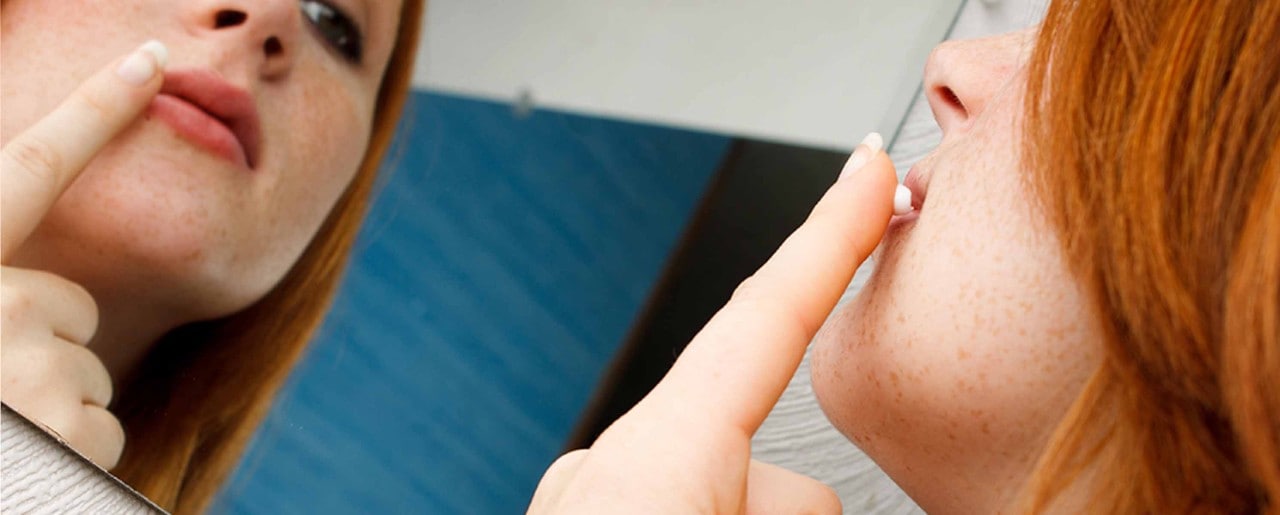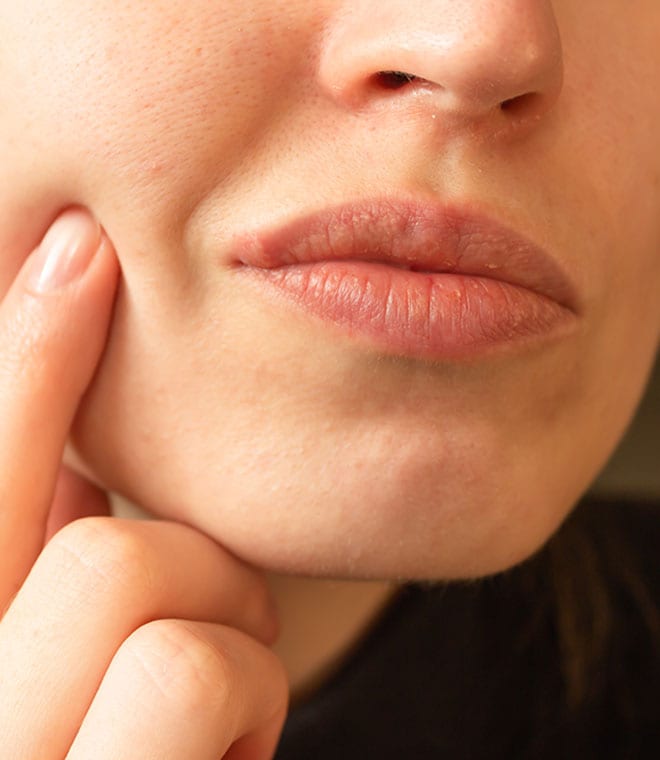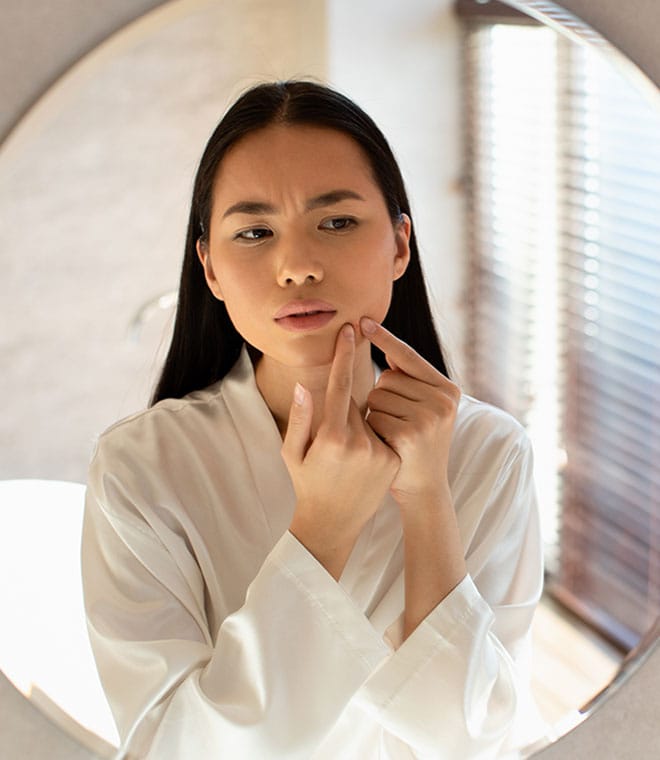Health
What are the different cold sore triggers?
By Anna H. Chacon, MD, Fellow of the American Academy of Dermatology Jul 30, 2024 • 5 min
Cold sores may seem to occur at the worst possible time—before a wedding, holiday, trip or job interview. Cold sores are largely unpredictable in terms of when they will occur, but a number of triggers are known to activate the virus and cause a sore. By understanding what might trigger a cold sore and taking steps to mitigate those triggers, you may be able to reduce the frequency and severity of cold sores.
Common colds and fever
When you have the common cold, a fever or another illness, your immune system is working hard to fight the infection—and you're more likely to get a cold sore while your immune system is compromised. You can't always avoid getting sick, but you can take steps to prevent getting cold sores when you're sick.
Specifically, you'll want to take extra care to avoid the following additional cold sore triggers, since you'll be more susceptible to them.
UV exposure
Although scientists aren't sure why, overexposure to UV rays from sunlight or tanning beds seems to trigger cold sores in many people. Protecting your lips from UV rays can help reduce the risk of a UV-related cold sore breakout. Here are some things you can do:
- Always wear sunscreen on your lips when you'll be outdoors, even on cloudy days. Choose an SPF 30 or higher lip balm that contains natural, hydrating, plant-based ingredients.
- In addition to wearing sunscreen, try to stay out of direct sunlight. Wear a wide-brimmed hat, keep your back to the sun or stay in the shade.
- Avoid tanning beds. If you do use a tanning bed, protect your lips with an SPF 50 balm and limit your time in the bed.
Extreme temperatures
Very hot and cold temperatures may trigger cold sores for some people. If this is the case for you, try these strategies for reducing the risk of a temperature-related outbreak:
- Whenever possible, stay indoors when the weather is very hot or very cold
- When you're outside in hot and cold weather, especially if it's windy, wear a nourishing, hydrating lip balm with SPF 30 sunscreen
- Whether it's hot or cold, protect your lips from direct sunlight with sunscreen and wear a brimmed hat or stay in the shade when possible
- On cold, windy days, protect your face and lips with a scarf or face mask
Damaged, dehydrated and cracked lips
Sun damage, exposure to heat and cold, habits like biting or picking at your lips, and a dry indoor environment can lead to dry, chapped lips that may peel, crack, sting and flake. The best way to reduce the risk of cold sores related to damaged lips is to prevent your lips from damage in the first place. Follow the tips above to protect your lips while you're in the elements, and try these lip care techniques to keep your lips healthy and hydrated all year long:
- Use lip products that are free of irritating ingredients like menthol, camphor, eucalyptus, dyes and synthetic fragrances. Choose products that have soothing, hydrating ingredients like vitamin E or castor seed oil. If your lips become very dry, use petroleum jelly or a thick ointment to seal in moisture.
- Apply lip balm throughout the day—and one last time before bed.
- Avoid touching, licking, biting or picking your lips. Licking them when they're dry may worsen the problem. Touching, biting or picking at lips can injure the skin and increase the risk for a cold sore or other infection.
- Don't hold things between your lips, like bobby pins, straws and writing utensils. These can irritate your skin and deposit bacteria.
Stress
Some people find that they are more likely to develop cold sores during stressful times. Avoiding stress is easier said than done, but discovering ways to reduce your stress levels may help reduce the risk of cold sores.
Cold sores are usually caused by the herpes simplex 1 virus, and it's nearly impossible to tell when the virus will activate and cause a cold sore. However, if you frequently get cold sores, or they're severe, painful or last longer than two weeks, make an appointment with your healthcare provider to discuss your possible triggers and antiviral medications that may help prevent cold sores or reduce their severity and frequency.
Clinically reviewed and updated July 2024.




